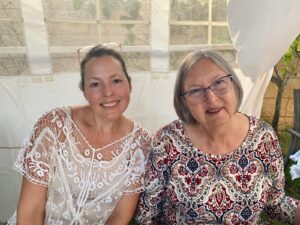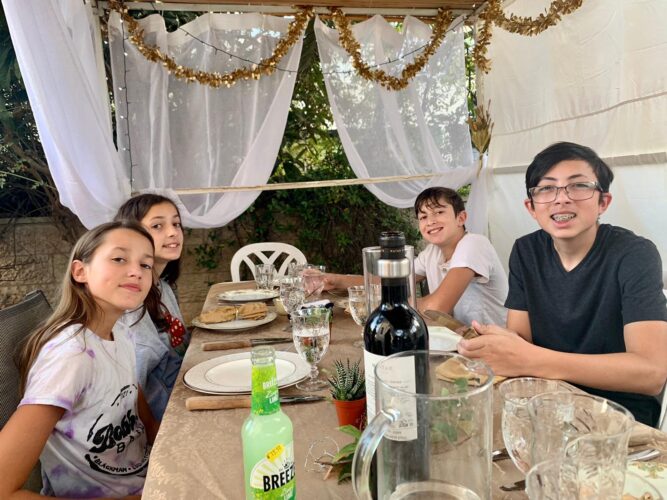We are in the middle of Sukkot or Tabernacles when our people were to dwell in tents, the meaning of the plural word Sukkot. It was to remind them of the 40 years in the wilderness; a time when God provided supernaturally. It was also a time of discipline for their failure to act in faith and enter the promised land. Many other meanings are given to Sukkot. From Numbers, we read of the 70 bulls sacrificed during the 7 days of Sukkot, which in Jewish traditional interpretation is the symbolic number of the nations. Israel, having had its own sins forgiven at Yom Kippur, five days later, begins sacrifices for the sake of the nations. She is a priestly nation interceding for the nations. This coheres with Zechariah 14 where after the terrible battle for Jerusalem and the defeat of the international coalition against Israel, all nations celebrate the Feast of Sukkot year by year. So, for us, it is the celebration of the coming Kingdom of God.
Fr. Dr. Raymond Brown, in his truly great two-volume commentary on the Gospel of John argues that John 5-9 as a section should be titled, “Jesus and the Principle Feasts of the Jews.” Chapters 7-9 are full of Sukkot themes indicating that Yeshua fulfills or brings to fullness the principle feasts of the Jews. Two ceremonies are especially important in the context. One is Yeshua’s proclamation that if anyone thirsts he should come to Him and drink and then. “Out of his innermost being will flow rivers of living waters. (John 7:37, 38) This was in the context of the very important Hoshana Rabba (7th day, the great day of the Feast) when water was drawn from the Pool of Siloam and poured out at the altar. Then in chapter 8 Yeshua proclaims that he is “the light of the world.) John 8:12. Brown gives reference to the lighting of the special Temple lamps that gave a marvelous light to Jerusalem. Again, this is indicating that Yeshua makes full the symbols of the Feast.
One of our leaders pointed out some 35 years ago that John 1 says that Yeshua tabernacled among us. In taking on a temporary mortal body, was Yeshua also fulfilling Sukkot, and was John giving a reference to it? I am not sure, but it is possible.
One thing however about Sukkot and all the pilgrim Feasts (Passover, Pentecost/Shavuot, and Pentecost/Sukkot, is that they are times of rejoicing, family, and the instruction of children. This year our families, the Moores, the Hollands and Ben and Lorena and their son Andrew, all gathered to celebrate. Here are some pictures of the Sukkah and a few of the family in a great time together.

